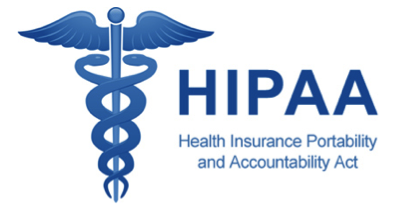Considering online therapy? In an era of rapid technological advancements, the rise of e-therapy has created ripples in the health industry. Online therapy and counseling is a fast-growing industry nowadays in the digital age. Professionals in this field offer extensive services, from electronic assessments to guidance and interventions for addressing issues.

They cater to various aspects, including work-related concerns, relationship difficulties, marital counseling, and elder maltreatment – essentially covering every facet that traditional office-based therapy encompasses. They can even cover psychological effects of the covid 19 pandemic. Dive to uncover more about this revolutionary therapeutic approach in our online world.
The virtual therapist offers a wide range of services, from digital assessment to advice and interventions, for dealing with anxiety, depression, and other problems like insomnia.
They then handle work problems, relationship issues, marriage counseling, elder abuse – almost everything the regular office-based therapist offers. Learn more from reading this article.
How Do Therapy Online Security Measures Work?
Dr. Hana Ra Adams PsyD., MA, LMFT, said, “Many of us can go overboard when it comes to shopping. We see the magic word “sale,” or there are special offers, or we find a style we like and choose to buy it in multiple colors.” Then, this is where virtual safety comes into play.
Online therapy differs in its setups, according to the American Psychological Association. Some do a face-to-face treatment as if you’re in an actual office setting where a session is scheduled on a regular weekly basis or whatever is preferred by the patient’s confidentiality. Others follow the arrangement to match the way apps or websites are designed, which often takes a shorter time of treatment than face-to-face therapy online sessions.
Moreover, online therapy platforms have become increasingly popular, but there are still knowledge gaps surrounding their security issues. The American Psychological Association still has ethical codes and professional boundaries that must be upheld to ensure clients’ private information remains secure. The Health Insurance Portability and Accountability Act, or HIPAA, is part of this. Virtual therapy via online platforms requires strong internet access to maintain uninterrupted sessions. While online therapy can be beneficial for some, in-person therapists may be a better option for those with security concerns. Professional associations have peer-reviewed studies available to guide therapists in providing secure virtual therapy.
If an earlier form of online therapy was more of text and printed self-help programs, now it has developed a system to make it more sophisticated and efficient and for many patients to benefit most from the services.
Online therapy safety under the Health Insurance Portability and Accountability Act includes interventions and additional features like learning exercises, progress reports, self-monitoring tools, downloadable documents (audio and video files), feedback, quizzes, and even games. Games are incorporated especially for many younger users to attract such interest, especially for those with social anxiety disorder and posttraumatic disorders.
According to Alicia H. Clark, PsyD, “Purchasing based on emotions – not based on thought – is one the major causes of impulse buying.”
How Does Online Therapy Work With Mentally Ill Clients?
Online therapy assessment questionnaires compliant with the Health Insurance Portability and Accountability Act are completed via a website or app. Once submitted, the assessment is automatically scored and interpreted according to the set norms. The scores are then sent directly to the virtual therapist and the client’s clinical record.
It usually uses a more advanced virtual reality method that assesses the sensitivity of particular situations, and sensors in smartphones make it possible to trace phenomena continuously like that of sleep, physical or activity, speech, use of the mobile devices, and even the client’s location.

How Can Online Therapy Protect The Information & Confidentiality?
All information from online therapy is saved up and kept by the online therapy company and clinicians as records, which can be accessed anytime, anywhere, under any circumstances. The question is, how can virtual counseling secure the information?
Mental health professionals have an ethical obligation to protect the privacy and security of their patients, particularly when providing online therapy. Patients and therapists alike must be cautious about their search history, online activity, and use of social media. Additionally, older adults may be particularly vulnerable to computer viruses and online scams. Mental health professionals have a duty to protect their patients by using evidence-based security measures and staying up-to-date on the latest online therapy security protocols.
Is Online Therapy Reliable And Secure?
There are people, I, for one, who are very particular regarding safety and confidentiality. Is my privacy in danger? You can say I am a bit paranoid when it comes to my personal space being shared in online therapy, and safety is quite a huge issue for me.
I am a bit untrusting that I used to be hesitant with the idea of how online therapy can secure everything. But with the flexibility of online therapy it saves time and energy, availability, and with almost the same effect as going to my therapist’s office. Then, I was persuaded to try virtual protection under the Health Insurance Portability and Accountability Act.
I was really particular about confidentiality and protection. I didn’t want to end up enrolling in fly-by-night online therapy providers, so I had to do my research on the online therapy thing. I found out that online therapy providers are required to adhere to Health Insurance Portability and Accountability Act (HIPAA) rules that secure both the client and the therapist regarding legal concerns, ethical codes, ethical guidelines, and legal issues.
When engaging in online therapy, security should be a top concern. The default option for online therapy platforms should prioritize secure communication and data access for patients and psychologists. Online therapy must be conducted on a secure internet connection to protect patient data. Experts in psychology must also use secure communication methods to ensure that patient information is not compromised. By prioritizing security in online therapy, patients and psychologists can engage in therapy with the confidence that their data is protected. Under the Health Insurance Portability and Accountability Act, your data and privacy are secure.

Secured Online Therapy Provider
Researching for a reliable and secure online therapy provider, it seems almost all e-counseling treatment companies offer the privacy of all documents, videos, and messaging, but are they HIPAA compliant? Are they using HIPAA-compliant video platforms for treatment?
These are just some things you must check before sharing information with online therapy providers.
Secured Online Therapy Conclusion And Takeaways
There are various ways support can be delivered to patients with online therapy sessions, and many are agreeable regarding the efficiency and how they are best helped by virtual treatment administered by a licensed therapist.
With the advancement in new technology and even becoming more advanced in the future, it’s unimaginable how many more people online treatment can reach out to, how many relationships it can salvage, how many live online therapy services can save from committing suicide, even the possibility of preventing committing crimes. That’s why it’s important to take the time to contact a health provider compliant with the Health Insurance Portability and Accountability Act, and works with the American Psychological Association. Most providers should also be covered by most forms of health insurance.
Indeed, providing online therapy sessions in an online therapy platform has gone a long way and had found its place in the mental health treatment system making it commonplace for treatment, guidance, and intervention.
Let’s just be careful in choosing online treatment providers that are HIPAA-compliant to be sure that the personal details, experiences, worries, and secrets that we are going to entrust to them are secured and will be used appropriately when entering online mental health services instead of when you opt for in-person therapy or traditional therapy. They have state lines and federal guidelines to follow, after all.
On a final note, Kasi Howard, PsyD, recommends everyone have a gratitude book. He said, “It flips my mindset and keeps me from ruminating on stressful things or from focusing on the negative. Plus, it’s a big mood lifter.”
Frequently Asked Questions
What Are The Disadvantages Of Online Counseling?
It is crucial to address the drawbacks of online therapy. Establishing a connection with the therapist might be challenging for some individuals. Additionally, costs and insurance coverage can vary greatly. Finding the right therapist might take several sessions.
Furthermore, technical issues or data privacy concerns occasionally arise in online therapy scenarios. A lack of live customer service support may also hinder obtaining immediate assistance when needed.
Moreover, online therapy isn’t suitable for everyone due to several reasons. There is less intimacy that some clients thrive upon during in-person meetings to create strong bonds with their therapists, and not all insurance companies cover digital therapeutic sessions. Hence, while online therapy has advantages, individuals seeking support must carefully consider these limitations before choosing this mode of therapy.
Is Online Psychotherapy Effective?
Yes, in the context of mental health services, it has been discovered that online therapy sessions can be equally as effective as traditional in-person consultations. A majority of psychologists who participated in the American Psychological Association’s 2021 COVID-19 Telehealth Practitioner Survey supported this claim.
Numerous global research studies have found similar outcomes; among them are investigations from Northwestern University in the United States (2014) and Leipzig University in Germany (2014). The findings reveal that virtual therapeutic sessions can be just as advantageous for clients over extended periods compared to face-to-face interactions.
What Is The Ethical Issue In Counselling?
In the realm of mental health support, one of the most significant ethical hurdles professionals often face is striking a balance between boundaries and rapport. It can sometimes prove challenging for practitioners to prevent personal relationships from forming with clients as they journey toward healing together. There may be instances where some individuals seek to blur these lines further due to the innate nature of therapist-client dynamics.
Adhering strictly to ethical codes addresses this concern; however, opening avenues for exploring new approaches to maintaining professional neutrality while fostering trust and providing solace remains vital. As such, mental health professionals must consistently strive for self-awareness and reflection in their practice while safeguarding clients’ well-being of paramount importance.
Is Therapy Better In Person Or Online?
Both are good. The contemporary world has introduced an alternative method for individuals seeking mental health assistance comparable to the effectiveness of traditional face-to-face support. By harnessing modern technology and expertly navigating the psychological sphere from a distance, professionals now offer unprecedented access to care from one’s own comfortable environment.
Can Online Therapists Diagnose You?
Yes, the possibility of consulting with a psychiatrist in a virtual setting has become increasingly popular, and individuals can now engage with mental health professionals through various mediums, such as video conferencing, phone conversations, or even text messages. These psychiatrists hold the expertise to diagnose and address mental health and behavioral concerns effectively. The utilization of appropriate prescriptions serves as helpful management tool for individuals seeking relief from their symptoms.
Is BetterHelp Safe?
Yes, this platform has undergone thorough scrutiny in alignment with business and medical benchmarks. Additionally, it has been assessed by mental health professionals within the medical affairs realm and has successfully passed all relevant evaluations.
Is Online Therapy Confidential?
Yes, when discussing mental health services without referencing online therapy explicitly, it can be said that modern approaches to therapy have taken into account security concerns while ensuring accessibility for those in need. This has been achieved through adherence to strict regulatory guidelines such as HIPAA compliance within virtual platforms catering to these services. As a result, individuals can rest assured knowing they are interacting within protected environments when seeking support for their mental health.
What Is The Primary Weakness Of Distance Therapy?
A primary concern associated with remote therapeutic sessions resides in their inability to guarantee the professional qualifications of practitioners. Identifying resourceful family members capable of addressing immediate issues can offer valuable support in such situations.
Why Do Counselors Ask Open-Ended Questions?
The utilization of open-ended questions by counselors predominantly grants clients room for introspection regarding their emotions and fosters elaboration on life experiences they have encountered. This type of questioning promotes individuals’ willingness towards sharing aspects related to personal relationships, perspectives on various matters affecting them directly or indirectly, as well as issues they may face daily along their journey through personal growth & development.
Is Therapy Via Zoom Effective With Informed Consent?
Yes, a study indicates that remote therapeutic methods can prove as efficacious as conventional face-to-face therapy sessions. In support of this notion, the American Psychological Association’s 2021 COVID-19 Telehealth Practitioner Survey reveals that most participating psychologists concur with this finding.